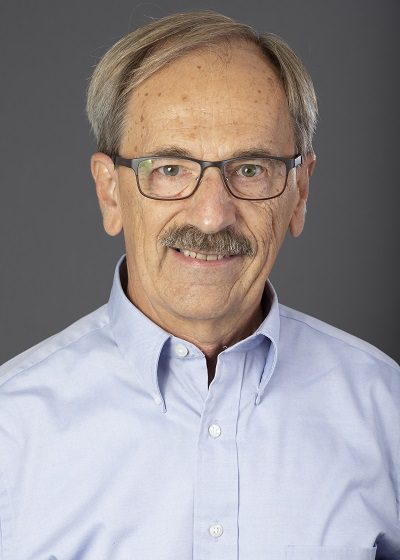From the Editor: Engineers Need To Lead the Way on Climate Change Mitigation

When our Editorial Director Todd Danielson gave me the heads up that Informed Infrastructure would be introducing a new “special issue” on “Green Engineering” a year from now in October 2021, I thought about the end of this summer season and how “un-green” it has been for so many of us. As we watch and listen to the news outlets, we see wildfires devastating forests and homes; hurricanes flooding cities and uprooting people; and in parts of the Midwest, the fields are just barely getting enough rain, and farmers are trying to catch up with irrigation. Water levels in the Great Lakes are reaching all-time highs and, as I tried to drive along the road on the Indiana shoreline, portions of the road were closed due to erosion (see this issue’s cover feature about the Great Lakes).
And all this is just in the United States. Around the globe, ice caps are melting, sea levels are rising, and ecosystems are stressed with water shortages in some areas and increased storm activity in others.
Continue the Climate Conversation
Everyone knows, or should know by now, the many ways individuals can contribute to the battle against climate change. Use less electricity, save water, eat all the food you buy, use LED bulbs, drive a fuel-efficient vehicle, weatherize your home, and on and on. Perhaps the most important thing we can do is inform people of the fact that climate change is real.
Nations worldwide are increasing the fight against climate change, even as the current president withdrew the United States from the Paris Agreement. Despite this move, governors, mayors, county officials, major companies, and millions of citizens across the country still support that agreement and continue working toward those goals.
I realize I’m not saying anything that hasn’t already been said, and that I’m writing this to engineers and scientists who know more about this issue and solutions than I do. But, as engineers and scientists, we need to continue the conversation and reach out to not only those who have the power to change laws and regulations, but also to friends and relatives and acquaintances who feel there’s little they can do. It has been said in one form or another that change only happens when individuals take action.
Make Temporary Changes Permanent
In the last few months, there have been many articles written about the effects of the pandemic on the climate-change problem. Previously polluted views from cities became clear. Air-quality measurements showed large improvements. There are so many fewer vehicle miles traveled that it has become noticeable to almost everyone. Because of those changes, there has been a significant positive change in public health. Many people believe this is a temporary condition, and everyone will return to our past lives and continue to cause pollution and increase climate change.
But can we make such changes permanent? Can we rethink the way we live our lives and be more aware of our environment? Many of us are getting a taste of how much more livable our cities can be if we put more emphasis on designing for people rather than transportation. Some cities have closed streets and areas to vehicles completely, which allows folks to walk and bike in a safer environment; this alone leads to a healthier lifestyle.
Perhaps we should consider redesigning our cities’ transportation networks. However, planners and city officials need to be aware of the inequalities that may come about for people who rely on inexpensive transportation to and from their workplaces. If a city reduced public transportation service during this pandemic, how does it provide equitable options for all?
Take Action
These are issues that engineers must not only think about but also take action. We must influence the lawmakers and leaders of our government, and help them understand the urgency of addressing climate change. We see how a pandemic can show signs of an improving environment. Imagine what we can do after we’re free of this horrible health problem. I hope the emotional impact of being in a healthier environment caused by a lockdown will cause us to look at climate change and effects on the environment with renewed enthusiasm.
About Robert Schickel
Robert Schickel was born in New Jersey and received his BS in Civil Engineering degree in 1971 from Valparaiso University in Indiana. His career started as a bridge design engineer and expanded to include design of various transportation facilities, including highways, bridges, rail lines and stations, and airport runways. Mr. Schickel managed engineering offices ranging from 20 to 140 people. He also served as a consultant to a large utility company. Mr. Schickel currently resides in Indiana and serves as Adjunct Professor for the College of Engineering at Valparaiso University. He enjoys his retired life at his lake house, playing golf, listening to music and spending time with his family, especially his grandchildren.


